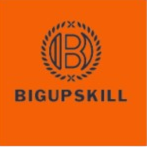
What Business Should I Start in Ghana?
Starting a business in Ghana presents a myriad of opportunities amidst a growing economy and an entrepreneurial-friendly environment. However, selecting the right business idea you should start in Ghana is crucial for personal success. Here’s a comprehensive guide to help you navigate through considerations and potential business ideas tailored for the Ghanaian market.
Considerations for Choosing a Business:
- Market Demand: Begin by assessing the current market demand in Ghana. Look for gaps or underserved areas where your business can meet unmet needs or provide better solutions than existing offerings.
- Passion and Skills: Factor in your interests, skills, and expertise. Starting a business aligned with your passions not only enhances your motivation but also increases the likelihood of sustained dedication and success.
- Startup Costs: Evaluate the initial investment required for each business idea. Opting for a business with lower startup costs can be more feasible, especially if you are starting with limited capital resources.
- Competition: Conduct detailed research on Ghana’s competitive landscape across several industries. Choose a business idea in which you can set yourself apart and provide unique value propositions that resonate with clients.
- Regulations and Licensing: Learn about the regulatory requirements and licensing procedures for different sorts of enterprises in Ghana. Ensuring compliance with local regulations from the start reduces legal risks and promotes a smooth operational experience.
Top Business Ideas to Consider in Ghana:
1. Sell Food Items, Particularly Fruit Drinks:
- Utilize locally sourced fruits to create refreshing fruit drinks. With minimal startup equipment like a blender and basic ingredients, you can start small and gradually expand your customer base. Target markets such as offices, schools, and local markets where demand for healthy beverage options is on the rise.
2. Sell Perfume Oils:
- Offer affordable alternatives to expensive perfumes by selling perfume oils made from natural extracts and fragrances. Customize blends to cater to diverse consumer preferences, emphasizing quality and affordability.
3. Sell Second-Hand Clothing:
- Transform gently used clothing into fashionable pieces that appeal to budget-conscious consumers. Capitalize on the popularity of thrift shopping by curating trendy collections and leveraging social media platforms for marketing and sales.
4. Cell Phone Accessories:
- Tap into the widespread usage of smartphones by retailing essential accessories such as cases, chargers, and screen protectors. Source products in bulk to benefit from economies of scale and position yourself competitively in the electronics market.
5. Provide Niche Services:
- Identify underserved niche markets within your community and offer specialized services. Examples include pet grooming, lawn care, tutoring, or event planning. Tailor your services to meet specific local needs and differentiate yourself through exceptional service quality and customer satisfaction.
Bottom lines
Selecting the right business to start in Ghana involves a strategic blend of market analysis, personal suitability, financial feasibility, and regulatory compliance. By meticulously evaluating market demand, aligning with your passions and skills, considering startup costs, assessing competition, and understanding regulatory requirements, you can make informed decisions that set the stage for entrepreneurial success.
In Ghana’s dynamic market environment, considering numerous business alternatives such as selling fruit drinks, offering economical perfume oils, retailing second-hand apparel, selling phone accessories, or providing specialized local services offers intriguing chances. By adopting tenacity, ingenuity, and a customer-focused strategy, ambitious entrepreneurs can embark on a rewarding journey to construct successful businesses that not only contribute to Ghana’s economic development but also improve community welfare.
Related Posts






